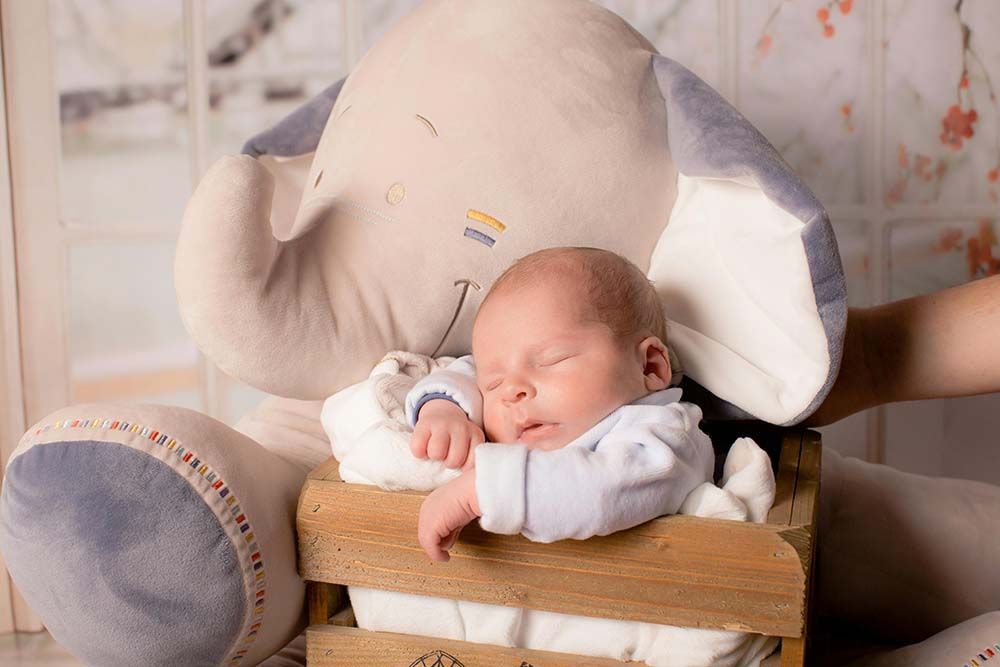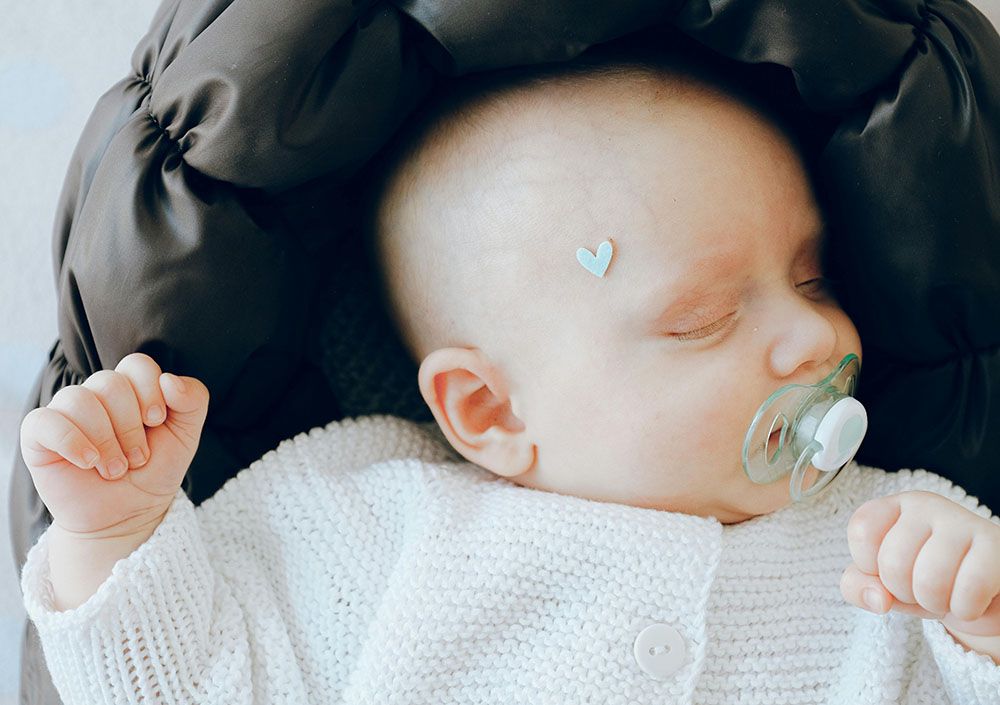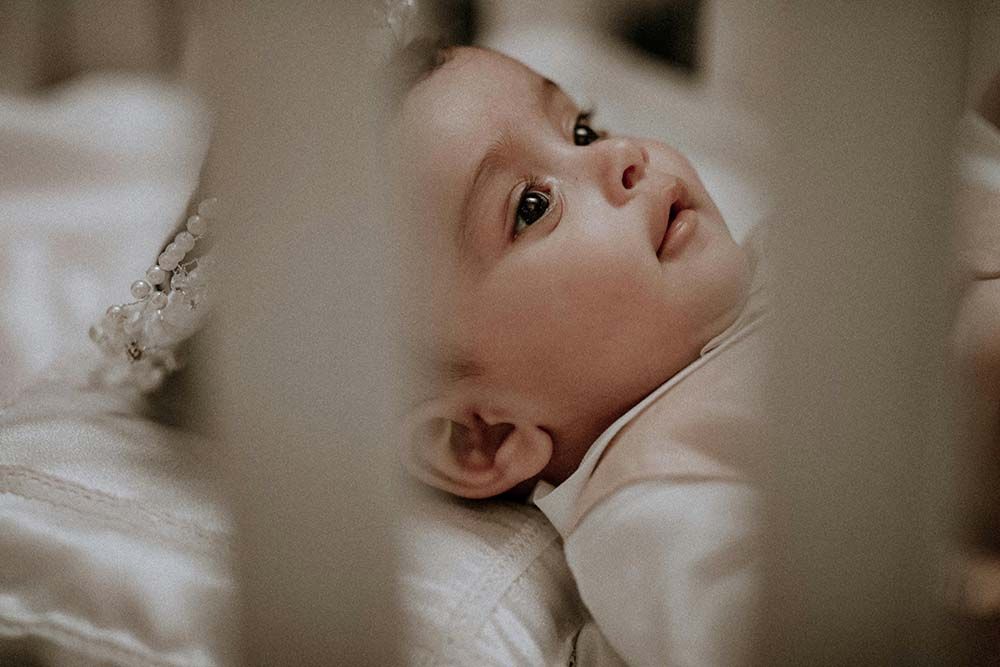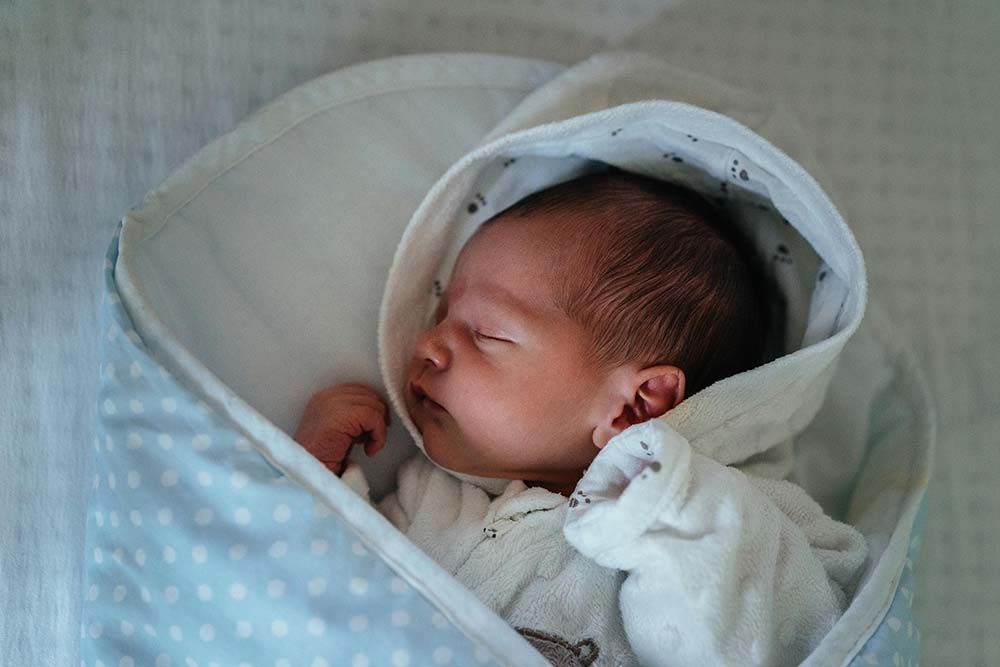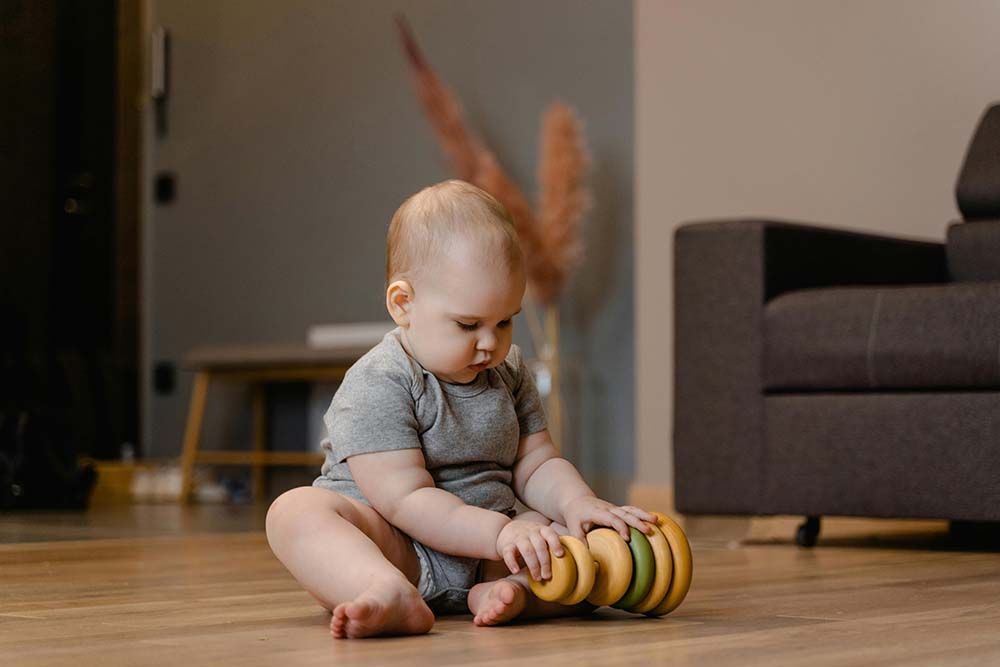

At 8 months, your baby is becoming more curious and active, exploring the world around them. While they might not be sleeping as much as they did in the newborn period, they still require ample rest to support their rapid development. Therefore, their sleep patterns keep evolving continually, and the changes are gradually exhibited in their napping habits and bedtime routines. This guide will help you navigate these shifts and ensure your little one gets the rest they need.
If you want to customize a sleep schedule for your baby, get the Moonycare app can do you a favor. It is a professional app to predict a scientific sleep pattern based on your baby's individual habit.
IN THIS ARTICLE:
What are Wake Windows for an 8 Month Old?
A Sample Sleep Schedule for 8 Month Old Babies
How Much Should an 8 Month Old Sleep?
How Long Should an 8 Month Old Nap?
How Many Naps are Suitable for an 8 Month Old?
Can you Sleep Train an 8-Month-Old?
Is there Sleep Regression for 8 Month Old Babies?
What are Wake Windows for an 8-Month-Old?
Wake windows refer to the duration of time your baby is awake between naps. For 8-month-olds, wake windows range from 2.5 to 3.5 hours. This period varies based on the baby's age, activity level, time of day, and individual development. In brief, baby gets longer wake windows with the growing of their physical body and their increasingly curiosity towards the surroundings. However, it is not absolutely fixed, because there is no two same leafs in the world, let alone babies.
Sample 8-Month-Old Sleep Schedule
Here's a sample sleep schedule to give you an idea of what a typical day might look like for your 8-month-old:
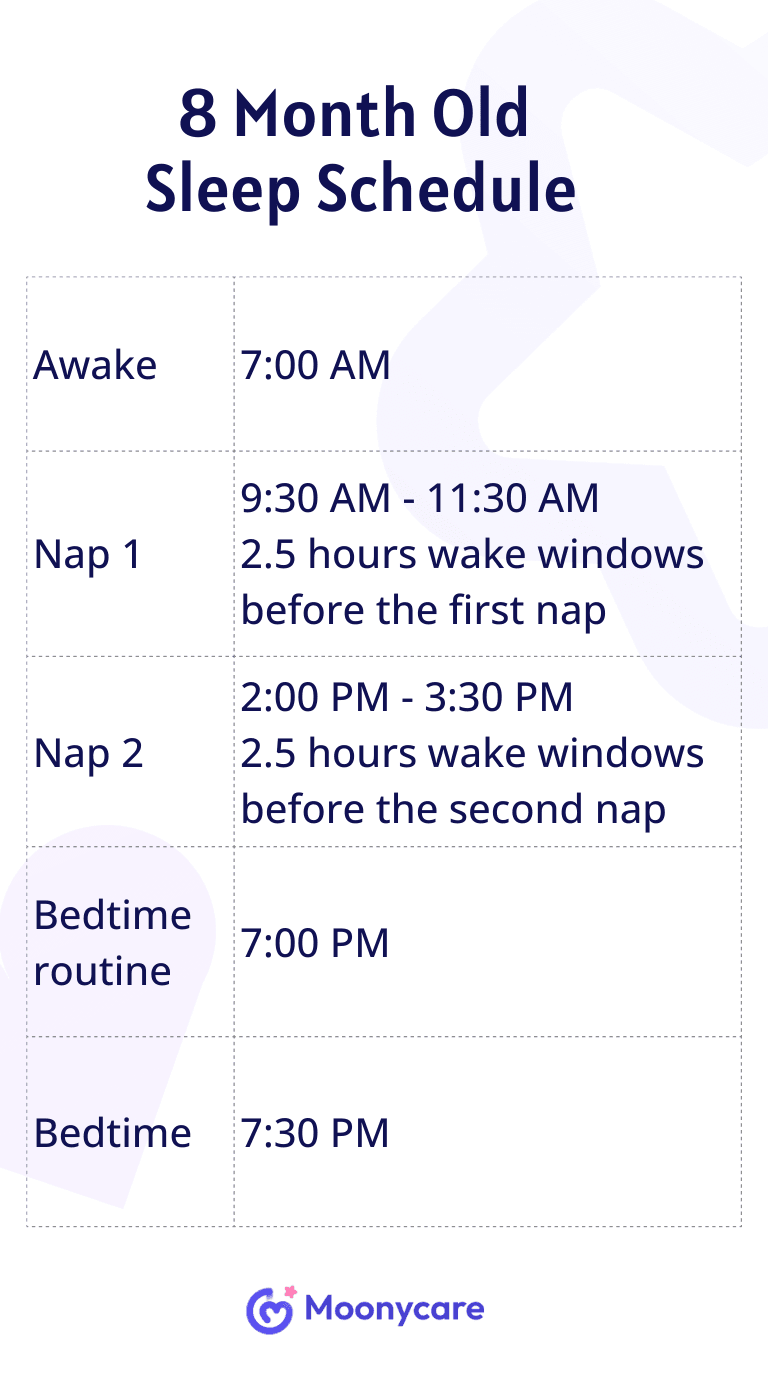
But remember that this schedule is just an example. You can make adjustments based on your baby's unique needs and wake windows. If you want to change your baby's sleep patterns, please perform it gradually to minimize disruptions and give time for your baby to adapt.
How Much Should an 8-Month-Old Sleep?
On average, an 8-month-old requires approximately 14 to 16 hours of sleep within a 24-hour period, consisting of nighttime sleep and daytime naps. However, since different babies shows considerable variability in sleep needs, some might naturally require more or less sleep.
Therefore, it is important for parents to watch for their baby's natural sleep tendencies and adjust their schedules accordingly, ensuring baby to get necessary rest they require. Signs of needing more sleep might include irritability, increased fussiness, or difficulty focusing.
How Long Should an 8-Month-Old Nap?
The duration of an 8-month-old's nap usually maintains approximately 1 to 2 hours per nap. Shorter naps, under 30 minutes, may not offer enough restorative sleep, leading to a groggy baby who may be harder to calm down for subsequent naps or nighttime sleep. Longer naps, exceeding 2 hours, might break up the baby's sleep-wake balance, potentially affecting nighttime sleep.
If a nap extends beyond the ideal duration, gently waking your baby can help maintain the healthy sleep schedule. You can take the effective strategies like softly speaking to them, changing their diaper, or adjusting the room's lighting.
How Many Naps are Expected for an 8-Month-Old?
At eight months, most infants mainly require 2 naps around the morning and afternoon respectively. It is normal that some requires 2 naps while some needs 3 naps a day, which means that you baby is ready for fewer naps. If you have observed the signs like staying awake for longer periods without drowsy, taking shorter and more frequent naps, you can consider to extend the wake windows between naps or add more engaging activities during awake time.
Can You Sleep Train an 8-Month-Old?
Yes, it is pretty effective to make sleep training at this age, because babies are generating the ability to self-soothe during this developmental milestone. There are various available training methods for you to choose from, such as the Ferber Method, which involves gradually increasing wait times before responding to nighttime cries, allowing the baby to learn to fall asleep independently. Gentle sleep training methods, offering comfort through physical proximity without picking up the baby.
It is important to select the suitable method should that aligns with your family's values and lifestyle. A successful sleep training must include consistency, patience, and a supportive sleep environment. Normally, persisting in following the selected methods firmly and providing a quiet and comfortable sleep environment can also help your baby adjust to the new sleep habits.
Is there an 8-Month Sleep Regression?
An 8-month sleep regression is common due to major developmental milestones, such as crawling or standing. During this period, babies may have difficulty settling to sleep or wake more frequently at night. Coping strategies include maintaining a consistent sleep routine, offering extra reassurance, and being patient as your baby adjusts to their new skills.
Remember that sleep regressions are temporary, and sleep patterns will stabilize once the new skills are mastered. If the sleep regression persists or significantly impacts your baby's well-being, consider seeking professional advice.
8-Month-Old Sleep Tips
Here are some practical tips to help the needed people optimize sleep quality for their 8- month babies.
Developa Bedtime Routine. A consistent routine can give your baby the indication that it's time to wind down You are allowed to make some calm activities, such as a warm bath, a gentle massage, and a bedtime story.
Create a Cosy Sleep Environment. The baby's bedroom is supposed to be dark, quiet, and cool. Thus, you can use white noise machines or blackout curtains to block out disruptive sounds and promote better sleep.
Limit Stimulating Activities Before Bedtime. Stimulating activities can make your baby hard to get into sleep at first. So avoid screen time and other activities before bedtime can create a relax condition to sleep for your baby.
Observe Tiredness cues. Learn to recognize the subtle cues that indicate your baby is ready for a nap, and then adjust the sleep schedule accordingly if necessary. The cues might include rubbing their eyes, yawning, or becoming fussy.
Seek Professional Advice. If your issue is still not solved after trying different methods, you may ask professional help from a pediatrician or specialist, who may offer you more practical and scientific support.
Conclusion
Navigating the 8-month sleep schedule can be challenging, but with patience and consistency, you can help your baby establish healthy sleep habits. Remember that every baby is unique, so it is vital to make adjustments based on your child's individual needs. With time and effort, you'll find a routine that works for both you and your little one.







